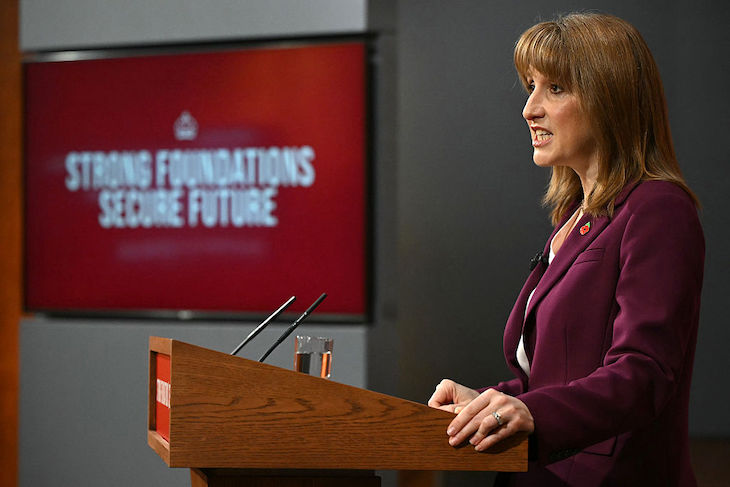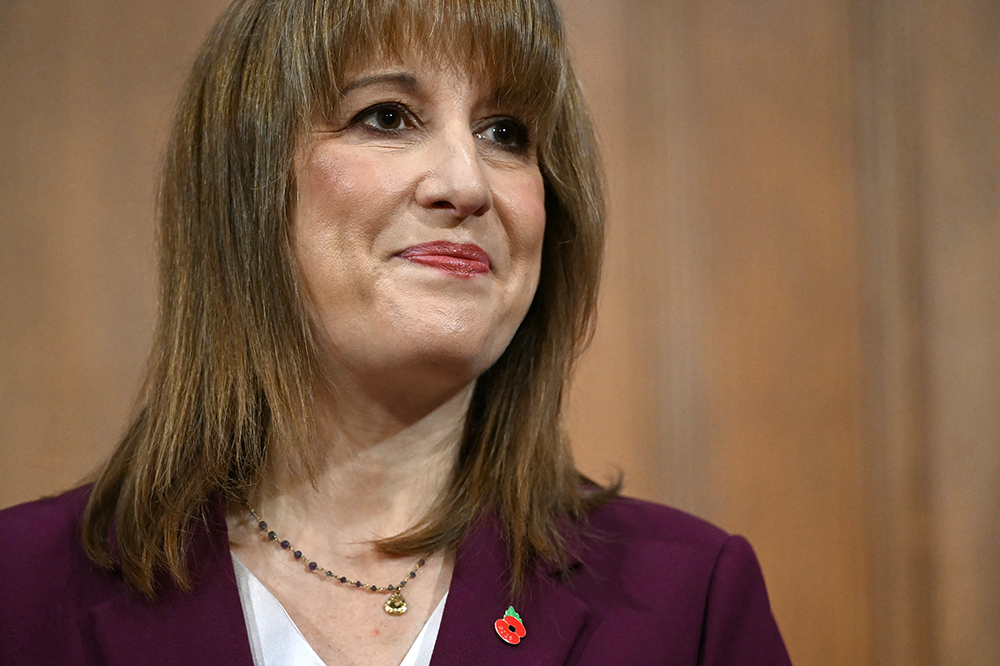It is three weeks until the Budget – and Rachel Reeves wants to get her narrative out there. The Chancellor held an early morning press conference today to, in her words, ‘set out the circumstances and the principles’ guiding her thinking on 26 November.
One line in particular stood out: ‘If we are to build the future of Britain together’, Reeves said, ‘we will all have to contribute to that effort. Each of us must do our bit’
Her speech followed a familiar pattern. First, there was the evisceration of the ‘austerity’, ‘reckless borrowing’ and ‘stop go of public investment’ which characterised the last 14 years.
Then came the global challenges of today: the ‘continual threat of tariffs’ and how the ‘cost of government borrowing’ has ‘increased around the world.’
Next, there was the dismissal of the ‘fantasy’ economics of the Tories and Reform UK.
Finally, there was the promise of sunlit uplands tomorrow: more investment ‘in our infrastructure and in our industry’, ‘more on schools and our health service.’ ‘There is a reward for getting these decisions right’, she said. ‘Our past does not have to determine our future.’
In her 25-minute speech in Downing Street, one line in particular stood out: ‘If we are to build the future of Britain together’, Reeves said, ‘we will all have to contribute to that effort. Each of us must do our bit.’
The exact nature of what said contribution looks like was what animated the various journalists in the room. That line appeared to be the clearest indication yet that broad-based tax rises are coming. Asked if she would have to break her manifesto pledge not to increase income tax, the Chancellor refused to give details of any imminent tax rises.
‘That’s not what today is about’, she insisted, ‘Today is about setting the context for that Budget.’
For her, the purpose of this morning’s exercise was clear: reiterating the public arguments about the worsening economic climate, forming an elite consensus on the need for higher taxes and making sure – as she did with the fiscal rule change of 2024 – that it does not surprise the markets on 26 November.
There was much in Reeves’ comments with which even critics would privately agree. ‘Shelling out for short-term sticking plaster solutions’ has become a national pastime, regardless of which party is in office. Criticism of the unpreparedness of UK energy policy for the Ukraine war would be echoed by various Tories. Getting around the fiscal rules by ‘simply reclassifying areas like defence and education’ would, as Reeves suggested, constitute a cop-out.
But as she herself acknowledged: ‘My job is not to commentate or to speculate – but to act.’ She sought today to define her positions as common sense, arguing that ‘Any chancellor of any party would be standing here today facing the choices that I make.’
There were echoes of Mrs Thatcher’s famous TINA: There Is No Alternative. Yet while Reeves’ diagnosis of poor growth, political turmoil and a stagnant economy is an accurate one, is an ever increasing tax burden really the right cure?
Reeves might protest that her hands are tied, but after 16 months of Labour government, the question should be asked: how much responsibility is she willing to bear? Today’s message was virtually the same as that of a year ago: that things are worse than previously thought and she is going to have to raise taxes. We await another three weeks of speculation to find out if there will be any brightness to offset the gloom – and whether Reeves has a solution to stop this vicious cycle from repeating again in another twelve months’ time.








Comments